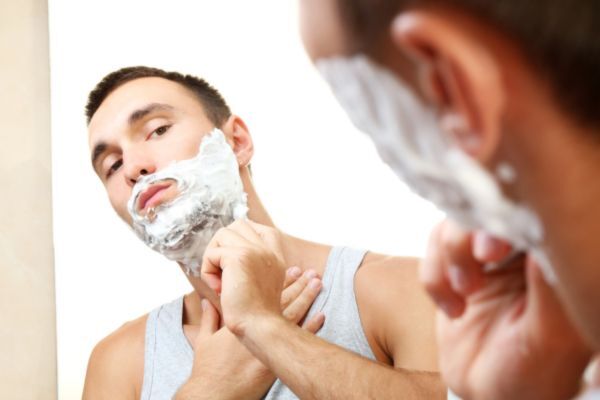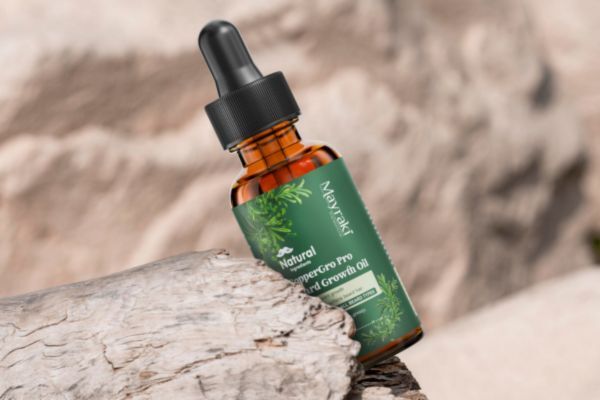How to Enhance Beard Thickness Naturally
Jul 14, 2025 | By Maria Eliza Pineda

A beard has been a part of men’s grooming for the longest time. It’s a point of pride, a style choice, and a confidence booster for many. However, it’s also true that not everyone will be blessed with a naturally dense and even beard which is completely okay! But of course, beard growth and quality can always be improved with the right combination of natural remedies, grooming habits, and lifestyle changes. Let’s get into how to enhance your beard thickness naturally.
Understanding Beard Growth: What Affects Thickness?
Genetics Play a Major Role
As with most things that have to do with your body, genetics largely determine how your beard grows, how dense it is, and how fast it grows. Some ethnicities will naturally have beards that are thin and patchy and some grow thick, full beards. Observe your father, grandfather, or close relatives’ beards. If they have either thin and patchy or fuller beards, chances are, whatever they have will be what you have or will have.
Hormones Matter
Hormones such as testosterone and dihydrotestosterone (DHT) are a big part of facial hair growth. Low levels of these hormones can lead to thinner and patchier beards. Any type of hormonal imbalance can also cause a hindrance to beard growth.
Step 1: Optimize Your Diet for Beard Growth
Protein-Rich Foods for Stronger Beard Hair
Protein (keratin) is literally what hair is made of. If you want thicker, stronger beard hairs, eating a balanced diet filled with protein-rich foods like lean meats, eggs, nuts, and legumes will help increase the protein in your hair and give you the results you’re after. This also improves the overall health of your beard.
Biotin and B Vitamins
Biotin (Vitamin B7) supports keratin production and improves hair structure. Other B vitamins like B3 (niacin) and B5 (pantothenic acid) also boost blood circulation and reduce hair shedding. They also help stimulate beard growth and accelerate the process. You can find these B-Vitamins in eggs, avocados, whole grains, and leafy greens.
Omega-3 Fatty Acids for Nourishment
Omega-3s are fatty acids that help moisturize your beard from within and keep the strands nourished and strong. They also reduce inflammation that can stunt growth and cause irritation. You can get these fatty acids by incorporating fatty fish, chia seeds, and flaxseeds in your diet
Zinc and Iron for Follicle Health
Zinc and iron are essential minerals for cellular repair and healthy hormone production. You can find these minerals in spinach, red meat, lentils, pumpkin seeds, and more. Easy foods to add into your diet.
Step 2: Stick to a Proper Beard Care Routine

Cleanse with a Gentle Beard Wash
The beard is naturally a sensitive area and won’t behave like the hair on your head. You cannot use normal shampoo for it. Instead, opt for a natural, sulfate-free beard wash or shampoo to cleanse your beard and remove dirt and excess oil without stripping it of moisture and causing irritation. Beard washing should be done daily to keep it clean and support optimal growth.
Exfoliate to Unclog Pores
Exfoliation is another step that should be done regularly. Dead skin and impurities trapped in your pores and hair can prevent new growth. To prevent this, you can use a beard scrub or exfoliating brush 1-2 times a week to clear this buildup. However, do note that there is such a thing as exfoliating too much. Be sure to not exfoliate more than 3 times a week so that the skin stays healthy.
Moisturize with Beard Oil
A good beard oil like the Mayraki CopperGro Pro Beard Growth Oil with natural ingredients like argan oil, jojoba oil, and castor oil can condition hair, soften the beard, and stimulate follicles. Massage it into your beard daily to nourish from the roots and nourish the skin underneath at the same time.
Use a Boar Bristle Brush
A boar bristle brush is designed to distribute the natural oils in your hair evenly throughout the strands. This gives the beard a shinier, healthier appearance. Brushing also boosts blood flow and stimulates beard growth.
Step 3: Boost Circulation to the Beard Area
Do Regular Facial Massage
Massaging your cheeks and jawline increases blood flow and can help awaken dormant follicles. Use circular motions with your fingertips or a beard roller for 5 minutes a day.
Try Natural Oils with Growth Benefits
You can also incorporate natural beard oils into your massage routine for a smoother experience and extra nourishment. You can use oils such as castor oil, peppermint oil, and rosemary oil to boost blood circulation and promote better hair growth.
Step 4: Manage Stress and Get Enough Sleep
Reduce Stress Levels
Stress is a silent killer. Reducing stress levels will always be essential when it comes to growing a healthy beard and keeping healthy. Stress hormones such as cortisol can block testosterone and slow down beard growth. Reduce your stress levels by incorporating relaxation techniques and self-care rituals into your routine. Make sure that you always have me-time.
Sleep for at Least 7–8 Hours
Sleep is when your body regenerates and balances hormones. Poor sleep can lead to brittle hair and slower beard development. It can also lead to higher stress levels and other health issues. Prioritize quality rest and get at least 7-8 hours of sleep daily.
Step 5: Avoid Bad Habits That Hinder Beard Growth

Cut Back on Smoking
Smoking is a habit that causes havoc on hair growth both on the top of your head and your beard area. This is because it restricts blood flow and causes damage to the hair follicles. Quitting smoking can instantly improve the quality of your beard.
Limit Alcohol Intake
Heavy drinking can mess with your hormones and make your testosterone levels fluctuate. It can also cause dehydration which can negatively impact your beard. Limit your alcohol intake and make sure you are drinking only occasionally and at a responsible amount.
Don’t Overpluck or Overstyle
Frequent shaving doesn’t make hair grow thicker (that’s a myth!), but overplucking or excessive styling may damage follicles. Let your beard grow naturally and shape it only when necessary. Get gentler tools such as a beard trimmer rather than shaving or plucking often.
Step 6: Consider Natural Supplements
Biotin Supplements
Biotin supplements are pretty well-known in the hair care industry. It’s great for promoting both hair and nail growth. You can include biotin supplements in your diet to boost your hair and nail health.
Collagen and Keratin
These are essential proteins inside your hair that strengthen and repair the strands. Collagen supplements can improve the quality of your beard hairs as well as nourish the skin underneath.
Multivitamins for Beard Health
Multivitamins are a great investment when it comes to your overall diet. You can get multiple nutrients in one pill which reduces the amount of supplements that you have to take. Multivitamins with zinc, iron, B vitamins, and magnesium are great for overall well-being and beard health.
Step 7: Be Patient and Consistent
As with any care routine, beard care requires patience and consistency to be able to see the changes. You can see the results after about 2 to 3 months. You can track your progress with photos or videos to see if your beard care routine is giving you the progress you want. However, remember that beard growth is a personal journey and can be different for everyone.
Go Natural, Grow Confident

Enhancing your beard thickness naturally is all about nourishing your body, taking care of your skin, and committing to the process. While genetics can’t be changed, your daily habits can significantly influence how thick and healthy your beard becomes. So eat well, stay active, care for your beard with the right products like the Mayraki CopperGro Pro Beard Growth Oil, and embrace the natural journey to a fuller, more confident beard.




